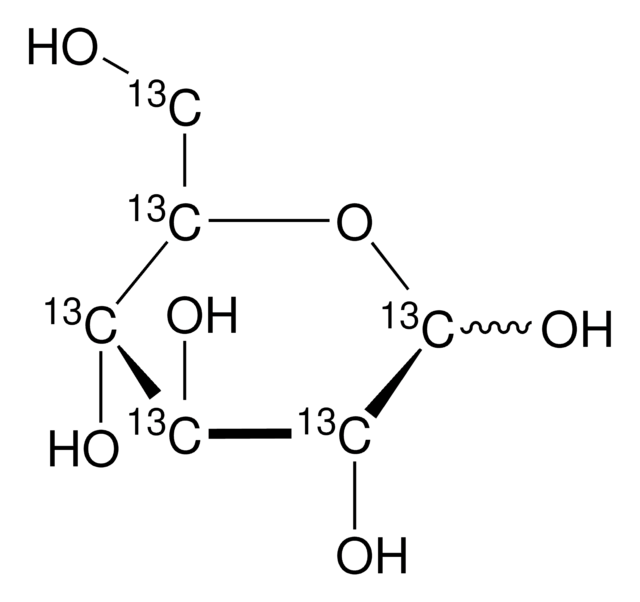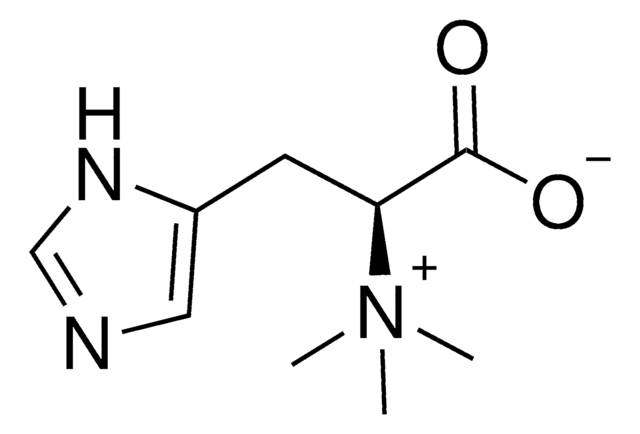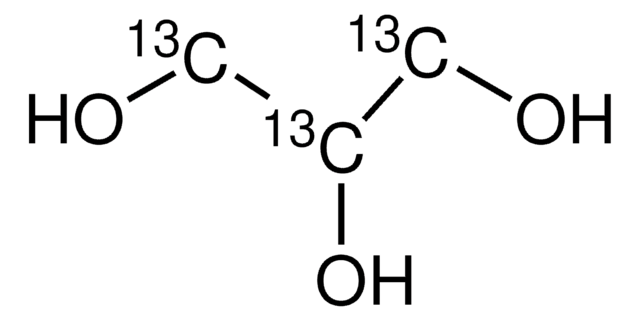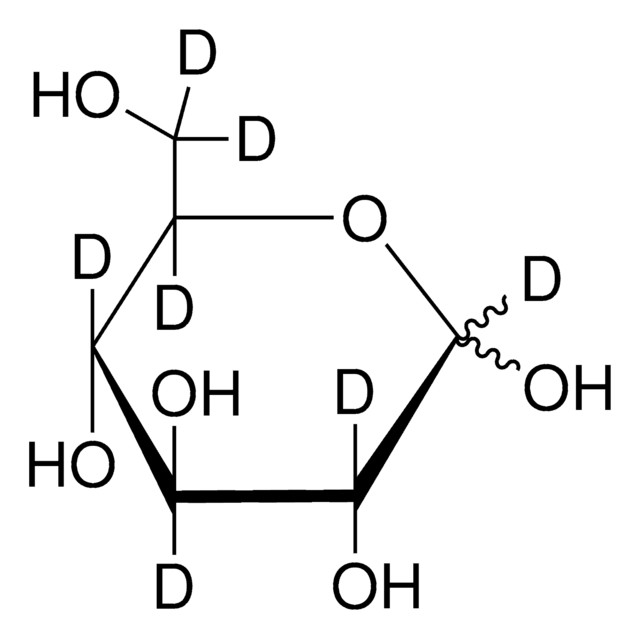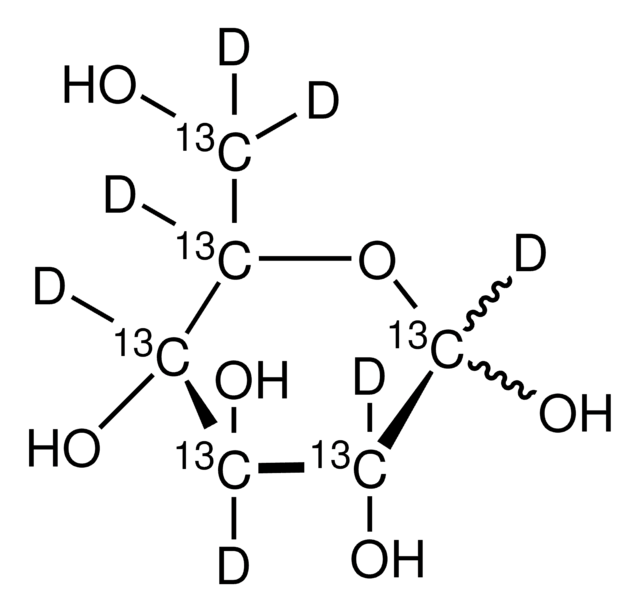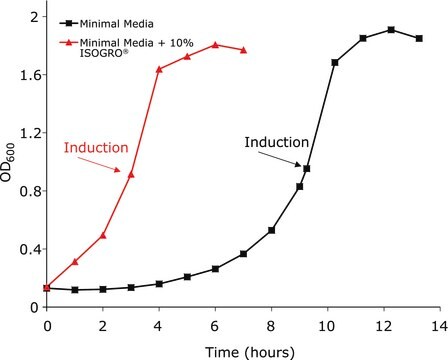608238
D-Glucose-13C6,1,2,3,4,5,6,6-d7
99 atom % 13C, 77 atom % D, 99% (CP)
Synonyme(s) :
Deuterated Glucose, Labeled Glucose, D-Glucose-13C6,C-d7, Dextrose-13C6,C-d7
About This Item
Produits recommandés
Pureté isotopique
99 atom % 13C
77 atom % D
Essai
99% (CP)
Forme
powder
Activité optique
[α]25/D +52.0°, c = 2 in H2O (trace NH4OH)
Poids mol.
191.47 by atom % calculation (99 atom % 13C; 77 atom % D)
Pf
150-152 °C (lit.)
Changement de masse
M+13
Chaîne SMILES
[2H][13C](=O)[13C@]([2H])(O)[13C@@]([2H])(O)[13C@]([2H])(O)[13C@]([2H])(O)[13C]([2H])([2H])O
InChI
1S/C6H12O6/c7-1-3(9)5(11)6(12)4(10)2-8/h1,3-6,8-12H,2H2/t3-,4+,5+,6+/m0/s1/i1+1D,2+1D2,3+1D,4+1D,5+1D,6+1D
Clé InChI
GZCGUPFRVQAUEE-VVZLUFAVSA-N
Vous recherchez des produits similaires ? Visite Guide de comparaison des produits
Conditionnement
Code de la classe de stockage
11 - Combustible Solids
Classe de danger pour l'eau (WGK)
WGK 1
Point d'éclair (°F)
Not applicable
Point d'éclair (°C)
Not applicable
Faites votre choix parmi les versions les plus récentes :
Certificats d'analyse (COA)
Vous ne trouvez pas la bonne version ?
Si vous avez besoin d'une version particulière, vous pouvez rechercher un certificat spécifique par le numéro de lot.
Déjà en possession de ce produit ?
Retrouvez la documentation relative aux produits que vous avez récemment achetés dans la Bibliothèque de documents.
Notre équipe de scientifiques dispose d'une expérience dans tous les secteurs de la recherche, notamment en sciences de la vie, science des matériaux, synthèse chimique, chromatographie, analyse et dans de nombreux autres domaines..
Contacter notre Service technique